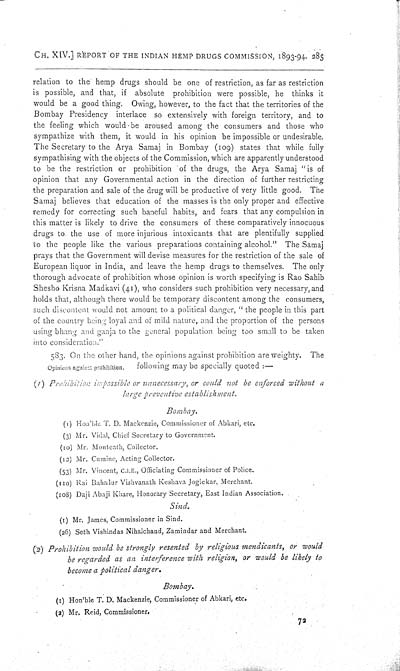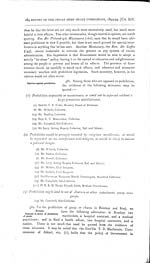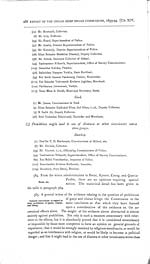Medicine - Drugs > Report of the Indian Hemp Drugs Commission, 1894-1895 > Volume I
(319) Page 285
Download files
Individual page:
Thumbnail gallery: Grid view | List view

CH. XIV.] REPORT OF THE INDIAN HEMP DRUGS COMMISSION, 1893-94. 285
relation to the hemp
drugs should be one of restriction, as far as restriction
is possible, and that, if absolute prohibition were possible, he
thinks it
would be a good thing. Owing, however, to the fact that the
territories of the
Bombay Presidency interlace so extensively with foreign territory,
and to
the feeling which would be aroused among the consumers and those
who
sympathize with them, it would in his opinion be impossible or
undesirable.
The Secretary to the Arya Samaj in Bombay (109) states that while
fully
sympathising with the objects of the Commission, which are
apparently understood
to be the restriction or prohibition of the drugs, the Arya Samaj
"is of
opinion that any Governmental action in the direction of further
restricting
the preparation and sale of the drug will be productive of very
little good. The
Samaj believes that education of the masses is the only proper and
effective
remedy for correcting such baneful habits, and fears that any
compulsion in
this matter is likely to drive the consumers of these comparatively
innocuous
drugs to the use of more injurious intoxicants that are plentifully
supplied
to the people like the various preparations containing alcohol."
The Samaj
prays that the Government will devise measures for the restriction
of the sale of
European liquor in India, and leave the hemp drugs to themselves.
The only
thorough advocate of prohibition whose opinion is worth specifying
is Rao Sahib
Shesho Krisna Madkavi (41), who considers such prohibition very
necessary, and
holds that, although there would be temporary discontent among the
consumers,
such discontent would not amount to a political danger, "the people
in this part
of the country being loyal and of mild nature, and the proportion
of the persons
using bhang and ganja to the general population being too small to
be taken
into consideration."
Opinions against prohibition.
583. On the other hand,
the opinions against prohibition are weighty. The
following may be specially quoted:—
(1) Prohibition
impossible or unnecessary, or could not be enforced without
a
large preventive
establishment.
Bombay.
(1) Hon'ble T. D.
Mackenzie, Commissioner of Abkari, etc.
(3) Mr. Vidal, Chief Secretary to Government.
(10) Mr. Monteath, Collector.
(12) Mr. Cumine, Acting Collector.
(53) Mr. Vincent, C.I.E.,
Officiating Commissioner of Police.
(110) Rai Bahadur Vishvanath Keshava Joglekar, Merchant.
(108) Daji Abaji Khare, Honorary Secretary, East Indian
Association.
Sind.
(1) Mr. James,
Commissioner in Sind.
(26) Seth Vishindas Nihalchand, Zamindar and
Merchant.
(2) Prohibition would
be strongly resented by religious mendicants, or would
be regarded as an interference with religion, or would be likely
to
become a political danger.
Bombay.
(1) Hon'ble T. D.
Mackenzie, Commissioner of Abkari, etc.
(2) Mr. Reid, Commissioner.
72
Set display mode to: Large image | Zoom image | Transcription
Images and transcriptions on this page, including medium image downloads, may be used under the Creative Commons Attribution 4.0 International Licence unless otherwise stated. ![]()
| India Papers > Medicine - Drugs > Report of the Indian Hemp Drugs Commission, 1894-1895 > Volume I > (319) Page 285 |
|---|
| Permanent URL | https://digital.nls.uk/74574704 |
|---|---|
| Description | Chapter XIV, cont. |
| Description | [Volume 1]: Report. |
|---|---|
| Attribution and copyright: |
|




